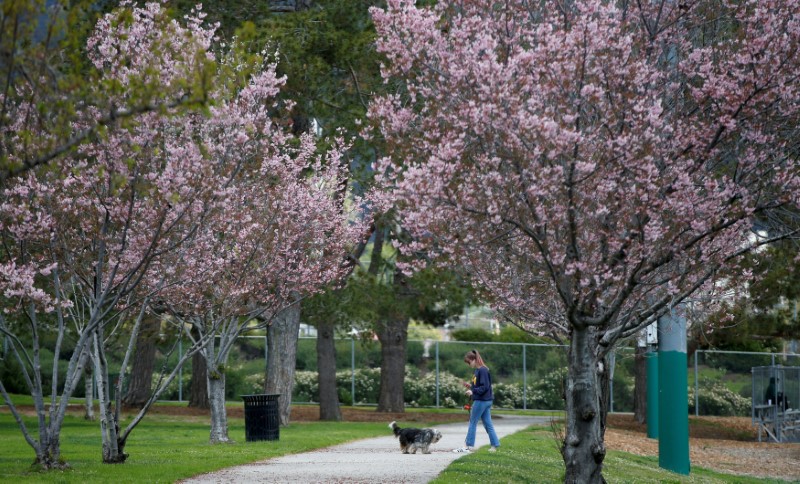By Beth Pinsker
Lily Reiche has lost nearly half of her dogwalking clients in Los Angeles because of California’s coronavirus stay-at-home order. Of the 40 or so accounts at My Dog Spot, which dried up because people are either working from home or have lost income, just five clients are continuing to pay.
“They all say, ‘You mean so much to us, this is something we need to do for you,'” Reiche said.
As state and federal governments work on macro solutions for sick pay, unemployment benefits and business bailouts tied to the economic meltdown resulting from the coronavirus, many Americans are faced with a tough financial – and very personal – decision: do you keep caregivers, housekeepers, dogwalkers, gardeners and other workers on the payroll if you do not need their services or if they cannot come to work right now?
There is not much guidance available other than the discussion on social media on figuring out the right thing to do.
The general consensus is that if you are still getting paid, you keep paying the people in your life as long as you can, even if they are not able to come to work.
However, the question that ominously remains to be answered: for how long?
“I think it’s pretty universal in terms of the nanny discussion, that if you’re still getting paid, that you compensate them,” said Roger Ma, a certified financial planner in New York.
Ma has a newborn at home and had just hired a nanny before all of this started. Last week, he handed her four weeks pay in advance and sent her home. Ma is also paying his bi-weekly housekeeper and not having her come.
But should the coronavirus crisis last for months, Ma has no idea how he will handle this financial conundrum.
“Let’s just take it day-by-day,” Ma said.
Some people are going to great lengths to get pay to workers they usually compensate in cash when they show up, using electronic payment services or even driving cash to the provider’s house.
Garrett Smallwood, chief executive of Wag!, an on-demand dog service app, has been using Apple Pay more than ever before. Smallwood is also leaving cash in his mailbox in envelopes for people he needs to pay.
“It’s a time to be sensitive and thoughtful. To anyone involved in my life or my kids’ life, we say: ‘Please take care of yourself. We’re going to continue paying you,'” Smallwood said.
Wag’s usage is down about 50% across the country, with dog boarding the hardest hit because of the lack of travel, Smallwood said. Some work-from-home clients are still having their dogs walked because they cannot leave during the day, and others are leaving tips for regular walkers even though they are not booking.
But not everyone is stepping up. Jack Thompson, co-owner of LA House Cleaning, which coordinates the services of about 10 independent contractors, only has enough business right now to keep about three cleaners going. Not a single customer who canceled has offered to keep paying.
“It’s pretty bad,” Thompson said. “If this goes on for a few months, I’m not sure we’ll still be in business.”
DECREASED HOURS
Child care services are also seeing a decrease in booking hours. At Care.com’s division that handles payroll services for clients, 20% of employers reduced hours to zero, said Eva MacCleery, director of client services at Care.com.
Because those workers have been paid as domestic employees with proper taxes taken out, they should be eligible for unemployment benefits. Those who are still employed would be eligible for whatever sick pay and family leave benefits get approved.
Care.com also is working on help for workers who are paid in cash.
“We know families would like to continue to pay, but some don’t know what will happen with their own jobs,” MacCleery said.
































